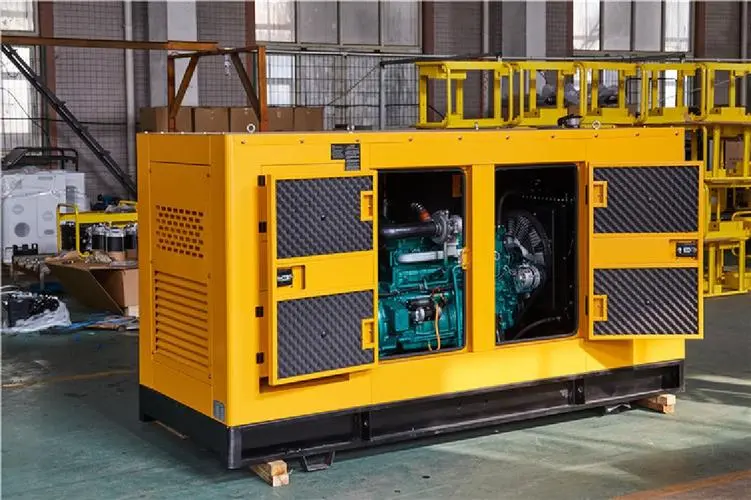Introduction:
Diesel generators play a crucial role in providing backup power solutions for various industries, organizations, and facilities. These generators are widely known for their reliability, durability, and efficiency in delivering consistent power during unexpected power outages. One essential aspect of ensuring the reliability of diesel generators is through rigorous testing procedures. Reliability testing is a critical step in verifying the performance and functionality of diesel generators under various operating conditions. This article explores the importance of reliability testing for diesel generators and highlights the key considerations in conducting such tests.
Importance of Reliability Testing for Diesel Generators:
Reliability testing is a fundamental aspect of ensuring that diesel generators perform as expected when called upon to provide backup power. These tests are designed to simulate real-world scenarios and assess the generator's ability to start, operate, and sustain power output under different conditions. By subjecting diesel generators to rigorous testing procedures, manufacturers and operators can identify potential issues, weaknesses, and vulnerabilities that may impact the generator's performance during actual power outages.
The reliability of a diesel generator is critical for industries and facilities that rely on continuous power supply to support their operations. For example, hospitals, data centers, manufacturing plants, and telecommunications facilities cannot afford any downtime due to power failures. By conducting thorough reliability testing, operators can gain confidence in the generator's ability to deliver reliable power when needed most.
Key Considerations in Diesel Generator Reliability Testing:
1. Load Testing: Load testing involves subjecting the diesel generator to varying load conditions to evaluate its performance and response to changing power demands. This test helps determine the generator's capacity to handle different loads and ensures that it can maintain stable power output under heavy loads. Load testing is essential for identifying any issues related to voltage regulation, frequency stability, and overall performance of the generator.
2. Environmental Testing: Diesel generators are often installed in diverse environments, ranging from harsh industrial settings to remote locations with extreme weather conditions. Environmental testing involves exposing the generator to temperature variations, humidity, dust, and other environmental factors to assess its resilience and performance under such conditions. This type of testing helps identify potential weaknesses in the generator's design or components that may be susceptible to environmental stress.

3. Start-up Testing: Start-up testing is critical for evaluating the generator's ability to initiate and synchronize with the main power supply seamlessly. This test assesses the generator's response time, starting reliability, and synchronization accuracy to ensure that it can quickly take over the load in case of a power outage. Start-up testing helps identify any issues related to the generator's control system, fuel supply, or starter motor that may hinder its prompt operation.
4. Endurance Testing: Endurance testing involves running the diesel generator continuously for an extended period to evaluate its long-term performance and reliability. This test helps identify any potential wear and tear on components, overheating issues, or other operational challenges that may arise during prolonged operation. Endurance testing is essential for assessing the generator's durability and reliability under sustained load conditions.
5. Fuel System Testing: The fuel system is a critical component of a diesel generator, as it directly impacts the generator's performance and efficiency. Fuel system testing involves evaluating the fuel supply, filtration, injection, and combustion processes to ensure optimal fuel delivery and combustion within the engine. This test helps identify any issues related to fuel contamination, clogging, or improper fuel-air mixture that may affect the generator's operation.
6. Control System Testing: The control system of a diesel generator plays a vital role in monitoring and regulating the generator's operation, including start-up, load sharing, voltage control, and shutdown procedures. Control system testing involves assessing the functionality of the generator's control panel, sensors, actuators, and communication interfaces to ensure proper operation and integration with the main power system. This test helps identify any control system failures, communication errors, or software glitches that may impact the generator's performance.
Conclusion:
Reliability testing is an essential aspect of ensuring the dependable performance of diesel generators for backup power solutions. By 75kw diesel generator for small-scale operations to rigorous testing procedures, manufacturers and operators can verify the generator's reliability, durability, and efficiency under various operating conditions. Load testing, environmental testing, start-up testing, endurance testing, fuel system testing, and control system testing are key considerations in conducting reliability tests for diesel generators. These tests help identify potential issues, weaknesses, and vulnerabilities that may impact the generator's performance during actual power outages. Investing in reliability testing is crucial for ensuring that diesel generators deliver consistent and reliable power when needed most.
